Tech
TikTok says it will go dark on Sunday unless Biden intervenes ‘immediately’
Published
3 months agoon
By
Ekwutos Blog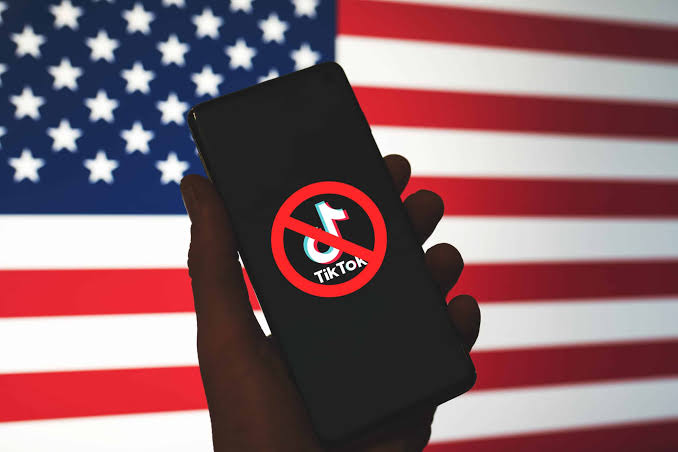
TikTok on Friday said that it would turn off more than 170 million Americans’ access to the super popular video app on Sunday, unless President Joe Biden’s administration acts urgently to assure the company it will not be punished for violating the terms of its looming ban.
A bipartisan law, signed by Biden in April, requires TikTok to sell to American buyers by Sunday or face a ban in the United States. The Supreme Court earlier in the day allowed the controversial ban to stand.
The Biden administration has made clear it would leave enforcement of the ban to President-elect Donald Trump, who will be inaugurated on Monday, and a White House official reiterated Friday night that its position on the matter has been sufficiently clear.
While the official did not rule out further action before the Sunday deadline, they said the administration had clearly signaled that it would not penalize service providers like Google and Apple for hosting TikTok on Sunday.
Still, TikTok said that was not enough.
“The statements issued today by both the Biden White House and the Department of Justice have failed to provide the necessary clarity and assurance to the service providers that are integral to maintaining TikTok’s availability to over 170 million Americans,” the company said in a statement Friday evening. “Unless the Biden Administration immediately provides a definitive statement to satisfy the most critical service providers assuring non-enforcement, unfortunately TikTok will be forced to go dark on January 19.”
Trump has suggested – but not outright stated – that he will not enforce the ban. He had asked the Supreme Court to stay the ban so his incoming administration could work out a deal to sell TikTok to American buyers. But the Supreme Court rejected an appeal from the app’s owners that claimed the law violated the First Amendment, allowing the ban to take place.
So TikTok could turn itself off Sunday, only to turn itself back on at a later date if Trump gives it assurances it will go unpunished for violating the ban.
The company’s Friday night warning was driven by concerns from service providers that face steep fines for allowing access to the app in the event of a ban.
Some service producers – companies that would face exorbitant fines for allowing access to TikTok once the ban takes effect – told TikTok Friday that they still feel vulnerable, according to a person familiar with the matter, who added that the service providers “do not feel that they’ve been given enough assurance that they will not be liable.”
Of course, the Biden administration’s power runs out on Monday, and White House aides have made clear that implementation of the law is entirely up to the incoming administration.
In the meantime, TikTok executives seem to be operating out of an abundance of caution, fearing legal and financial penalties and exerting maximum pressure to keep the app alive in the United States over the long term.
The Supreme Court won’t intervene
Earlier Friday, the high court handed down an unsigned opinion in the TikTok case, and there were no noted dissents.
The decision, which followed warnings from the Biden administration that the app posed a “grave” national security threat because of its ties to China, will allow the ban to start Sunday. But there are a lot of lingering questions about how the ban would work in practice because there’s no precedent for the US government blocking a major social media platform. And how exactly the government would enforce it remains unclear.
In its opinion, the Supreme Court acknowledged that for 170 million Americans TikTok offers “a distinctive and expansive outlet for expression, means of engagement, and source of community.”
But the court said, Congress was focused on national security concerns and that, the court said, was a deciding factor in how it weighed the case.
“Congress has determined that divestiture is necessary to address its well-supported national security concerns regarding TikTok’s data collection practices and relationship with a foreign adversary,” the court wrote.
In a TikTok video responding to the decision, TikTok CEO Shou Chew suggested the company will continue its efforts to ensure the app remains accessible for Americans — potentially now with an assist from President-elect Trump.
“We have been fighting to protect the constitutional right of free speech for the more than 170 million Americans who use our platform every day to connect, create, discover and achieve their dreams,” Chew said. “On behalf of everyone at TikTok, and our users across the country, I want to thank President Trump for his commitment to work with us to find a solution that keeps TikTok available in the United States.”
He added: “We are grateful and pleased to have the support of a president who truly understands our platform, one who has used TikTok to express his own thoughts and perspectives, connecting with the world and generating more than 60 billion views of his content in the process.”
Trump tells CNN: ‘I’ll be making the decision’
The ruling also puts the spotlight on Trump, who spoke with CNN’s Pamela Brown after the decision came down.
“It ultimately goes up to me, so you’re going to see what I’m going to do,” Trump said.
Asked if he would try to reverse the pending ban, Trump said: “Congress has given me the decision, so I’ll be making the decision.”
Trump also confirmed he spoke with Chinese President Xi Jinping, saying they had “a great talk about TikTok and a great talk about many other subjects.”
But the Biden administration – which ends in less than 72 hours – said it was time for Trump to take the baton on the ban.
White House press secretary Karine Jean-Pierre said in a statement Friday morning that “President Biden’s position on TikTok has been clear for months, including since Congress sent a bill in overwhelming, bipartisan fashion to the President’s desk: TikTok should remain available to Americans, but simply under American ownership or other ownership that addresses the national security concerns identified by Congress in developing this law.”
“Given the sheer fact of timing, this administration recognizes that actions to implement the law simply must fall to the next administration, which takes office on Monday,” she added.
Companies and content creators connected to TikTok’s operations in the US – caught in limbo between the two administrations – are seeking assurances that a ban on the popular app and any penalties won’t be enforced right away.
The law penalizes companies that “distribute” or “update” the app with fines of up to $5,000 for each user affected, an equation that could easily reach hundreds of millions of dollars – and potentially billions of dollars – in penalties. The law requires the Department of Justice to investigate potential violations and pursue enforcement.
“From what we’ve heard already … that the implementation is up to the new administration already suggests that they don’t plan on enforcing it,” Jeffrey Fisher, who represented TikTok users in the challenge to the ban, said on CNN’s “The Lead with Jake Tapper.”
“But just given the nature of the law and how many people in the country are watching this,” Fisher said, “we’re just seeking additional clarification that there’s a little breathing space for the new administration to come in and take a fresh look at this.”
A US law enforcement official, however, told CNN that the current Biden administration is leaving it to companies and their attorneys to interpret how to comply with the law on Sunday. In practical terms, the Justice Department isn’t going to file lawsuits over the holiday weekend, with Martin Luther King Jr. Day on Monday, the law enforcement official added.
In his video, Chew told viewers, “Rest assured we will do everything in our power” to ensure the popular app remains available, adding: “More to come.”
The TikTok CEO is set to be seated on the dais, alongside other leading tech CEOs, at Trump’s inauguration — perhaps a sign of just how serious the incoming president is about trying to save the app.
And with some in Congress now suggesting that TikTok might need more time to find a buyer, Trump could find support in trying to push off the ban to a later date.
The law gives the president the option to extend the ban by 90 days, but triggering the extension requires evidence that parties working on purchasing have made significant progress, including binding legal agreements for such a deal — and TikTok’s parent company, ByteDance, hasn’t publicly updated its stance that the app is not for sale.
Decision focuses on ‘extensive’ data collection and security concerns
The Supreme Court decision focuses heavily on concerns about the app’s data collection.
The Biden administration had made two national security arguments about TikTok. One was a fear that the China could access users’ information as potential blackmail material. Another was that the company could manipulate content in a way that benefits the Chinese government’s talking points.
The Supreme Court, which often defers to the executive branch on matters of national security, leaned heavily into the data collection argument.
TikTok does “not dispute that the government has an important and well-grounded interest in preventing China from collecting the personal data of tens of millions of U.S. TikTok users,” the court wrote. “Nor could they. The platform collects extensive personal information from and about its users.”
The court was careful to note the “inherent narrowness” of its ruling given the specific concerns regarding TikTok and the Chinese government. In another similar case, the justices said, the ruling could look different.
“Data collection and analysis is a common practice in this digital age. But TikTok’s scale and susceptibility to foreign adversary control, together with the vast swaths of sensitive data the platform collects, justify differential treatment to address the Government’s national security concerns,” they wrote.
The ruling also noted that justices are “conscious that the cases before us involve new technologies with transformative capabilities.”
Gorsuch and Sotomayor discuss level of scrutiny
Conservative Justice Neil Gorsuch wrote a concurrence sketching out distinctions in how he viewed the case from a legal perspective, while stressing that these thoughts came with just a very limited time that the court had to review and decide the case.
He said that he had “serious reservations” about the level of scrutiny the court’s opinion applied to the law, indicating that he thought “strict scrutiny” – which sets a higher bar for the government to overcome to prove the law’s constitutionality – may have been the more appropriate approach.
But even under that high bar, Gorsuch said he thought the government had met its burden.
“Speaking with and in favor of a foreign adversary is one thing. Allowing a foreign adversary to spy on Americans is another,” he wrote.
Liberal Justice Sonia Sotomayor, also concurring in the court’s opinion, wrote separately to air her disagreement with the court’s decision to “assume without deciding” that the law implicates the First Amendment.
The court’s line of cases dealing with the First Amendment, she said, “leaves no doubt that it does.”
This story has been updated with additional developments.
You may like
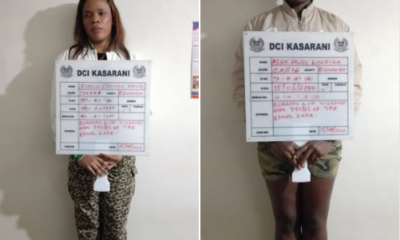

Detectives arrest two men who pose as ‘stunning’ female masseurs to massage away their clients’ valuables at knifepoint
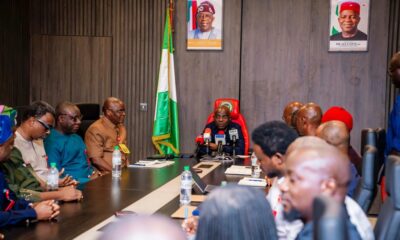

Otti expresses concern over stalled works on Nigeria Railways Umuahia-Enugu section


PwC exits nine African countries to focus on markets with growth prospects


Married OnlyFans model in a throuple relationship with her husband of 10-years and cousin reveals she is pregnant for another man


First look at Iyabo Ojo’s daughter, Priscilla, and her groom Juma Jux as they have their traditional wedding in Nigeria (photos)


SPEECH BY THE HONOURABLE MINISTER OF INFORMATION AND NATIONAL ORIENTATION, MOHAMMED IDRIS, fnipr, AT THE SIXTH EDITION OF THE 2025 MINISTERIAL PRESS BRIEFING SERIES, AT THE NATIONAL PRESS CENTER, RADIO HOUSE, ABUJA, ON THURSDAY, APRIL 17, 2025.
Tech
They only know how to drain data’ – Telecom consumers lament tariff hike, poor network
Published
3 days agoon
April 14, 2025By
Ekwutos Blog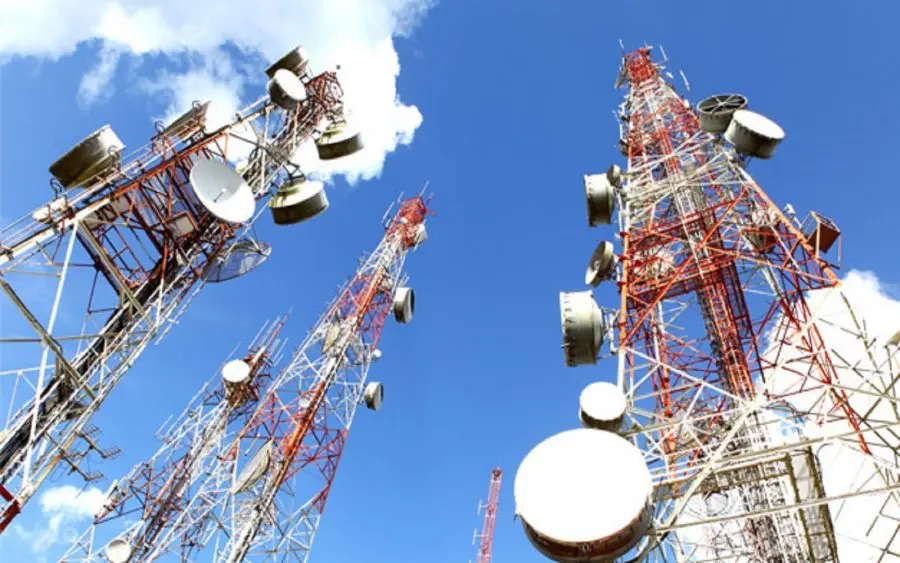
Some telecommunication services consumers in the Federal Capital Territory, FCT have urged Mobile Network Operators to improve their services to match the recent hike in their tariffs.
They made the call in separate interviews with NAN on Monday in Abuja.
The subscribers said despite the increase in subscription rates mobile networks could remain epileptic for hours.
In a publication dated February 6, 2024, the Executive Vice-chairman of the Nigerian Communications Commission, Dr Aminu Maida, said that the commission would hold service providers accountable for poor service delivery.
Mr Ogah Paul, one of the subscribers said he had enough data on his network but could not access the internet because of the epileptic network.
He urged service providers to fix the problems surrounding the poor services.
“The only thing they know is to drain data without any good service delivery. I feel like crying because of a problematic network. I have been receiving server errors since morning.
“To even download and watch a video sent to me since, takes me almost one whole day. “I wonder if members of staff of the service providers are enjoying the service they render to us.
“We cannot make calls, access the internet or even receive calls,’’ he said.
According to him, unfortunately, the network providers put up some of the best adverts about their products and services which they cannot meet.
Mr Victor James, another subscriber said he had enough data but was not able to use it to his satisfaction.
“Why does their data plan not reflect immediately when you buy data? Sometimes it takes as much as 24 hours to reflect.
“I am tired of this. The network is really bad. I have enough data but I cannot use it the way I want.
“I hope the issues get resolved as soon as possible so that I can access my data without further delay,” he said.
However, Ms Josephine Tanko, told NAN that she had no problems with her network providers.
“It is fast and reliable. I think it is the network that gives the best internet speed and quality.
“It will always be my best that is why I will always choose it over any other network,” she said.
She called on networks that did not meet their subscriber’s expectations to ensure that they improved their services.
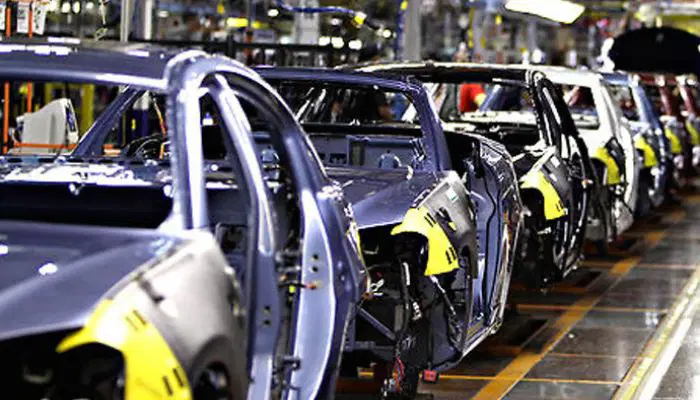
By Adegboyega Adeleye
The importance of cars in transportation cannot be overemphasised with some countries known for their production.
Transportation is required for work, school, and industry, with car production fast becoming a major producer of revenue and a player in the global was financial market.
Car production is one of the largest economic sectors internationally; however, some countries produce more cars than others. The list of countries by motor vehicle production is based on statistics by the International Organization of Motor Vehicle Manufacturers.
The world’s car manufacturers put another 93.5 million vehicles on the roads in 2023, the last full-year numbers currently available.
This article will explore the top 5 countries with the highest car production.
1. China
China, the world’s biggest manufacturer overall, leads the world in car production. The country’s 2023 production totaled more than 30 million vehicles, adding up to more than 30% of all cars and trucks produced globally.
The largest domestic car manufacturers in China, known as the traditional “Big Four,” are SAIC Motor, Dongfeng, FAW, and Chang’an.
2. United States
The United States–a major automotive producer, known for its large vehicle market–is the second biggest auto manufacturing country with a volume of 10,611,555. This represents about 5.5 percent growth compared to the 10,060,339 produced in 2022.
The United States produces less than half of what China does, having manufactured about 1.8 million cars and 8.3 million commercial vehicles in 2022. The United States’ largest car manufacturers, referred to as the “Big Three,” are General Motors, Ford Motor Company, and Fiat Chrysler.
3. Japan
Japan ranked as the third biggest automobile-producing country in the world with a total volume of 8,997,440 vehicles manufactured in 2023. The country is a significant player in the global automotive industry, known for its engineering and quality.
After a sudden drop in production from 2020-2022 due to the COVID-19 pandemic, Japan produced just under 9 million vehicles in 2023 (8,997,440)–a drop from its pre-COVID total of nearly 9.7 million in 2019.
However, the volume grew by 14.8 percent compared to the 7,835,519 produced in 2022.
Japan’s automotive industry is one of the largest industries in the world. The country’s automotive manufacturers include Toyota, Honda, Daihatsu, Nissan, Suzuki, Mazda, Mitsubishi, Subaru, Isuzu, etc.
4. India
India is the fourth-largest automobile-producing country in the world with a total number of 5,851,507 manufactured in 2023. The volume of vehicles grew by 7.2 percent compared to 5,456,857 vehicles produced in 2022.
Although, India is not renowned in America or Europe as a vehicle manufacturer, the Asian nation produced 5.8 million cars in 2023– an annual increase of 7%. India’s export markets for vehicles include Saudi Arabia, South Africa, and Mexico.
The nation is rapidly growing as an automotive market and producer.
5. South Korea
South Korea is the fifth-largest auto-producing country in the world. The country manufactured a total of 4,244,000 vehicles in 2023, representing a growth of 13 percent from a total of 3,757,049 vehicles produced in 2022.
The major South Korean automobile manufacturers include GM Korea, Hyundai Motor Group and its affiliate, Kia Corporation along with Renault Korea Motors.
Tech
A lot of people don’t know this but do you know that all your internet connections and services are powered by Glo, not all but majority is powered by an under see cable called GLO1 THAT’S owned by Glo1.
Published
4 days agoon
April 13, 2025By
Ekwutos Blog
Now because they make more money from this than selling as retailers that’s why they don’t care about their ISP SERVICE in retail quantities.
It’s like a bakery, they are most focused on selling to bulk buyers than single house hold user’s.
So you MTN, GLO AND ALL THAT are mostly connected to GLO1 even banks and may other platforms.
Ok let me break everything down.
1. Glo’s GLO-1 Cable:
GLO-1 is a private submarine cable owned by Globacom. It stretches from Nigeria to the UK and connects several West African countries. It was Nigeria’s first privately owned international submarine cable, launched around 2010.
Key Facts about GLO-1:
• Length: Over 10,000 km.
• Capacity: Designed for up to 2.5 Tbps.
• Landfall points: UK, Portugal, Senegal, Côte d’Ivoire, Ghana, and Nigeria.
• Purpose: Meant to reduce dependence on SAT-3 and provide high-speed internet capacity.
⸻
2. Why Glo May Not Focus Heavily on Retail ISP Services:
Glo essentially plays two roles:
• Infrastructure owner (wholesaler)
• Internet provider (retailer)
The wholesaling of the GLO-1 cable (and other bandwidth infrastructure) can be significantly more profitable and less stressful than managing millions of data subscribers in Nigeria with high expectations and poor last-mile infrastructure.
So yes:
Glo likely focuses more on selling bulk bandwidth to big clients than pleasing end users.
⸻
3. Who Are Glo’s GLO-1 Subscribers (Wholesale Clients)?
These can include:
• Telecom companies: ISPs, other mobile network operators.
• Banks and financial institutions.
• Tech companies and data centers.
• Government institutions.
• Educational institutions (for broadband research/academic access).
• CDNs and enterprise clients (e.g., Netflix, Google, Meta might use transit partners who tap into GLO-1).
4. How Many Submarine Cables Does Glo Own?
• Only One: GLO-1 is the only submarine cable Globacom directly owns.
• However, Glo might lease or partner to access others like:
• SAT-3 (older system, via NITEL/NTEL)
• ACE, WACS (via partnerships or regional consortiums)
So , Glo’s focus on being a wholesale bandwidth provider through GLO-1 might be one reason why their retail ISP service suffers in terms of customer satisfaction. They’re likely making more consistent revenue selling to institutions, ISPs, and data centers than from individual subscribers who demand high-quality, stable data service — which requires serious investment in towers, backhaul, and customer service
Copyright of Isaac Rocks Adeiza (Original Owner must be tagged to any Redistributions of content)
Content can’t not be redistributed for profit purposes.

Detectives arrest two men who pose as ‘stunning’ female masseurs to massage away their clients’ valuables at knifepoint

Otti expresses concern over stalled works on Nigeria Railways Umuahia-Enugu section

PwC exits nine African countries to focus on markets with growth prospects
Trending

 Trending6 months ago
Trending6 months agoNYA demands release of ‘abducted’ Imo chairman, preaches good governance
- Business6 months ago
US court acquits Air Peace boss, slams Mayfield $4000 fine

 Politics6 months ago
Politics6 months agoMexico’s new president causes concern just weeks before the US elections
- Entertainment6 months ago
Bobrisky transferred from Immigration to FCID, spends night behind bars
- Entertainment6 months ago
Bobrisky falls ill in police custody, rushed to hospital

 Politics6 months ago
Politics6 months agoRussia bans imports of agro-products from Kazakhstan after refusal to join BRICS

 Politics6 months ago
Politics6 months agoPutin invites 20 world leaders
- Politics1 year ago
Nigerian Senate passes Bill seeking the establishment of the South East Development Commission.

